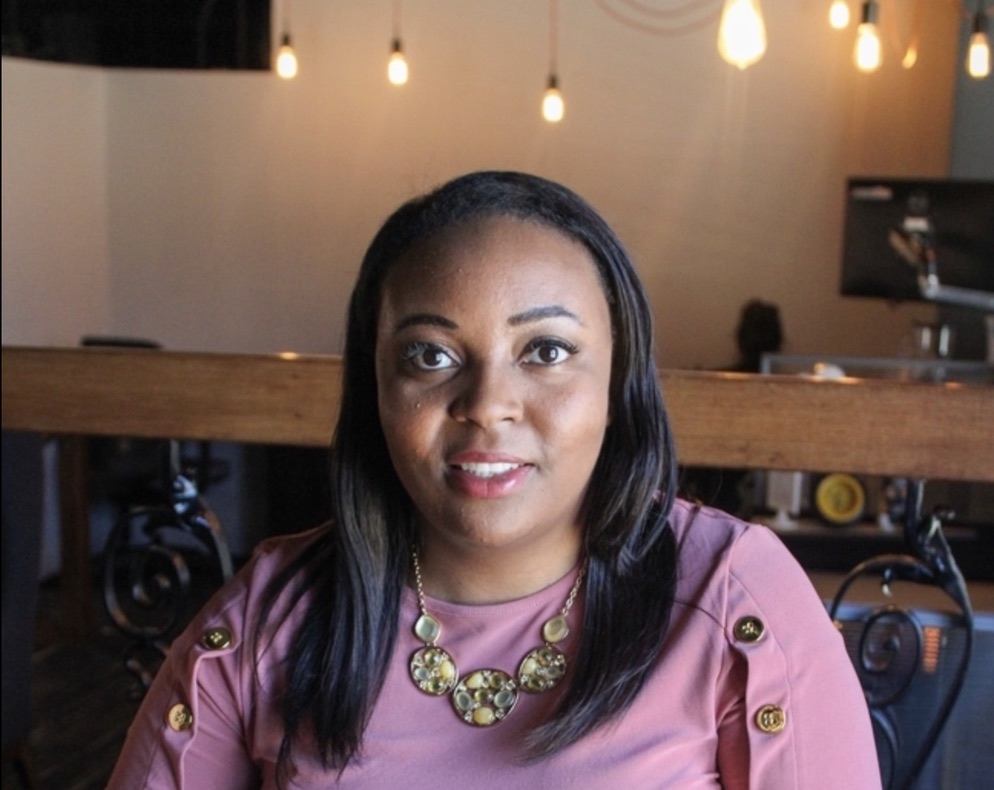Taylor Swift Can Shake Off Wedding Costs — But Most Couples Can't: The Price of Getting Married in 2025
From engagement rings to bachelor parties, here's what it really costs to get married in 2025.

Profit and prosper with the best of Kiplinger's advice on investing, taxes, retirement, personal finance and much more. Delivered daily. Enter your email in the box and click Sign Me Up.
You are now subscribed
Your newsletter sign-up was successful
Want to add more newsletters?

Delivered daily
Kiplinger Today
Profit and prosper with the best of Kiplinger's advice on investing, taxes, retirement, personal finance and much more delivered daily. Smart money moves start here.

Sent five days a week
Kiplinger A Step Ahead
Get practical help to make better financial decisions in your everyday life, from spending to savings on top deals.

Delivered daily
Kiplinger Closing Bell
Get today's biggest financial and investing headlines delivered to your inbox every day the U.S. stock market is open.

Sent twice a week
Kiplinger Adviser Intel
Financial pros across the country share best practices and fresh tactics to preserve and grow your wealth.

Delivered weekly
Kiplinger Tax Tips
Trim your federal and state tax bills with practical tax-planning and tax-cutting strategies.

Sent twice a week
Kiplinger Retirement Tips
Your twice-a-week guide to planning and enjoying a financially secure and richly rewarding retirement

Sent bimonthly.
Kiplinger Adviser Angle
Insights for advisers, wealth managers and other financial professionals.

Sent twice a week
Kiplinger Investing Weekly
Your twice-a-week roundup of promising stocks, funds, companies and industries you should consider, ones you should avoid, and why.

Sent weekly for six weeks
Kiplinger Invest for Retirement
Your step-by-step six-part series on how to invest for retirement, from devising a successful strategy to exactly which investments to choose.
Taylor Swift and Travis Kelce recently announced their engagement after two years of dating, and while the pop icon and NFL star can certainly afford a lavish celebration, most couples planning a 2025 wedding are facing a very different financial reality.
With May to October being the most popular season for weddings, everything from venues to floral arrangements comes at a premium, and costs are climbing faster than ever.
Whether your child just said “yes” or your grandchild is starting to look at venues, it’s worth understanding what a modern wedding really costs and where you might be asked to help out.
From just $107.88 $24.99 for Kiplinger Personal Finance
Become a smarter, better informed investor. Subscribe from just $107.88 $24.99, plus get up to 4 Special Issues

Sign up for Kiplinger’s Free Newsletters
Profit and prosper with the best of expert advice on investing, taxes, retirement, personal finance and more - straight to your e-mail.
Profit and prosper with the best of expert advice - straight to your e-mail.
The engagement ring is just the beginning

Before you even hear the words “save the date,” a big chunk of money has already been spent.
According to The Knot, the average engagement ring cost in 2025 is around $5,200, with custom designs, lab-grown diamonds and brand-name pressure pushing that figure even higher.
While the tradition of spending three months’ salary on a ring might be outdated, the expectation of something sparkly and social media-worthy is very much alive. For many couples, the pressure starts here.
Pre-wedding events can rival the big day

Once the engagement is official, the pre-wedding event parade begins, and it's not just one celebration anymore. This can include everything from:
- Engagement parties
- Bridal showers
- Bachelor/bachelorette trips
- Welcome dinners
- Rehearsal brunches
What used to be one night out at a local bar or a gathering at home with close friends is now often a weekend-long destination event, especially for bachelor and bachelorette parties. Vegas, Nashville, Cabo, even Europe are now top picks, and they’re not cheap.
One survey showed that guests spend an average of $1,500 on bachelor/bachelorette trips, and that’s just guests, not the couple.
When you factor in flights, hotel rooms, outfits, meals and activities such as party buses or private boat rentals, pre-wedding celebrations can rival the actual wedding in cost and scope. Multiply that by two or three events, and you’re looking at another $5,000 to $7,000-plus before the big day.
The wedding day price tag keeps climbing

Weddings have always been pricey, but 2025 is setting new records.
According to industry data, the national average cost of a wedding is now $35,000 to $38,000, with some metro areas (such as New York City or San Francisco) pushing well above $50,000.
Here’s where the money typically goes:
- Venue rental: $12,000-plus
- Catering (per person): $80 to $150
- Open bar: $3,000 to $6,000
- Photographer/videographer: $4,000-plus
- Florals and decor: $3,500-plus
- Wedding attire: $2,000 to $4,000
- Entertainment: $2,500 to $5,000
Inflation hasn’t helped. Rising costs for food, alcohol and flowers (blame global supply chain issues and extreme weather) have made even simple weddings more expensive.
Want to cut costs with a do-it-yourself (DIY) approach? Be mindful that time, energy and hidden fees (like rentals and labor) can quickly add up, especially if you’re planning during peak season.
A DIY approach doesn’t have to mean doing everything yourself. Rather, it can add a personal and cost-saving touch in the right places.
For example, maybe the couple skips the high-end bakery and invites a skilled home baker to do a tasting for reception desserts. Perhaps they partner with a newer florist or photographer who offers discounts in exchange for portfolio-building.
Networking within your community such as friends, small business owners and local vendors can uncover hidden gems at a fraction of the price.
Don’t forget the honeymoon

After all the planning, celebrating and months of coordinating, the honeymoon is that first breath of calm for a newly married couple. The average honeymoon in 2025 costs from $5,000 to $7,500, depending on the destination.
With airfare, resort rates and travel insurance all climbing, it’s not uncommon for international trips to push $10,000-plus, especially if the couple is heading to a “bucket list” destination such as Greece, the Maldives or Japan.
Unlike weddings, honeymoons are typically paid for solely by the couple, though some modern registries now let guests “sponsor” excursions or airfare. Parents and grandparents who want to make a meaningful contribution can often help here.
Covering a few nights’ lodging, gifting airline miles or scouting out great travel deals can be a wonderful gesture that lifts some of the financial load while adding a personal touch of support.
When couples look back years later, they won’t remember the exact catering bill or chair rental price, but they will remember that once-in-a-lifetime trip.
Earn rewards faster and enjoy exclusive perks when you add one of Kiplinger's top airline cards to your wallet, powered by Bankrate. Advertising disclosure.
Do parents still help pay?

Historically, it was tradition for the bride’s family to cover most wedding costs. But in today’s world, that model doesn’t always fit.
Millennial and Gen Z couples are more likely to pay for weddings themselves or split costs with both sets of parents.
Many parents and grandparents still want to contribute in meaningful ways.
According to a survey by The Knot:
- Parents contribute to 82% of wedding budgets, on average.
- Around 50% of couples funded their honeymoons on their own; the other half received financial help from parents and gifts from wedding guests.
- Millennials and Gen Z couples are more likely to use personal savings or take out wedding loans.
- Many families are opting for “shared budgets” in which each party contributes what they can toward a common goal.
The key is finding what’s realistic for your budget. That might mean offering to pay for a single element, such as the rehearsal dinner, photography or the honeymoon, instead of trying to cover everything.
Splitting costs with the other set of parents or extended relatives can also help even out with the financial support and make the process more collaborative. Couples often appreciate thoughtfulness and teamwork just as much as the dollar amount.
Here’s something important to remember: while weddings certainly come with a price tag, knowing the costs in advance gives families time to plan, save and make thoughtful choices.
Bottom line: Not everyone can 'shake it off' like Taylor
Weddings today are a blend of tradition, personalization and Instagram-able moments. Today’s prices reflect it as couples are facing big decisions and even bigger budgets.
If you're supporting a loved one through their wedding journey, the best gift might be a mix of financial support and practical advice.
If you're the one planning, know that it's okay to set limits, skip trends and focus on what matters most: Celebrating love, not chasing likes.
Related Content:
Profit and prosper with the best of Kiplinger's advice on investing, taxes, retirement, personal finance and much more. Delivered daily. Enter your email in the box and click Sign Me Up.

Choncé is a personal finance freelance writer who enjoys writing about eCommerce, savings, banking, credit cards, and insurance. Having a background in journalism, she decided to dive deep into the world of content writing in 2013 after noticing many publications transitioning to digital formats. She has more than 10 years of experience writing content and graduated from Northern Illinois University.
-
 Quiz: Do You Know How to Avoid the "Medigap Trap?"
Quiz: Do You Know How to Avoid the "Medigap Trap?"Quiz Test your basic knowledge of the "Medigap Trap" in our quick quiz.
-
 5 Top Tax-Efficient Mutual Funds for Smarter Investing
5 Top Tax-Efficient Mutual Funds for Smarter InvestingMutual funds are many things, but "tax-friendly" usually isn't one of them. These are the exceptions.
-
 AI Sparks Existential Crisis for Software Stocks
AI Sparks Existential Crisis for Software StocksThe Kiplinger Letter Fears that SaaS subscription software could be rendered obsolete by artificial intelligence make investors jittery.
-
 One of the Most Powerful Wealth-Building Moves a Woman Can Make: A Midcareer Pivot
One of the Most Powerful Wealth-Building Moves a Woman Can Make: A Midcareer PivotIf it feels like you can't sustain what you're doing for the next 20 years, it's time for an honest look at what's draining you and what energizes you.
-
 I'm a Wealth Adviser Obsessed With Mahjong: Here Are 8 Ways It Can Teach Us How to Manage Our Money
I'm a Wealth Adviser Obsessed With Mahjong: Here Are 8 Ways It Can Teach Us How to Manage Our MoneyThis increasingly popular Chinese game can teach us not only how to help manage our money but also how important it is to connect with other people.
-
 Looking for a Financial Book That Won't Put Your Young Adult to Sleep? This One Makes 'Cents'
Looking for a Financial Book That Won't Put Your Young Adult to Sleep? This One Makes 'Cents'"Wealth Your Way" by Cosmo DeStefano offers a highly accessible guide for young adults and their parents on building wealth through simple, consistent habits.
-
 My Spouse and I Are Saving Money for a Down Payment on a House. Which Savings Account is the Best Way to Reach Our Goal?
My Spouse and I Are Saving Money for a Down Payment on a House. Which Savings Account is the Best Way to Reach Our Goal?Learn how timing matters when it comes to choosing the right account.
-
 We're 78 and Want to Use Our 2026 RMD to Treat Our Kids and Grandkids to a Vacation. How Should We Approach This?
We're 78 and Want to Use Our 2026 RMD to Treat Our Kids and Grandkids to a Vacation. How Should We Approach This?An extended family vacation can be a fun and bonding experience if planned well. Here are tips from travel experts.
-
 Why Most Millionaires Don't Feel Wealthy — and What It Really Takes to Feel Financially Secure
Why Most Millionaires Don't Feel Wealthy — and What It Really Takes to Feel Financially SecureA growing share of Americans reach millionaire status yet still worry about money. Here's why wealth feels different today and how to build true financial confidence.
-
 You Could Be Overpaying for Internet. Here’s How to Choose the Right Type
You Could Be Overpaying for Internet. Here’s How to Choose the Right TypeFiber, cable, 5G wireless and satellite internet all offer different speeds, reliability and price points. Understanding the differences could help you lower your monthly bill or improve performance.
-
 My First $1 Million: Retired From Real Estate, 75, San Francisco
My First $1 Million: Retired From Real Estate, 75, San FranciscoEver wonder how someone who's made a million dollars or more did it? Kiplinger's My First $1 Million series uncovers the answers.
